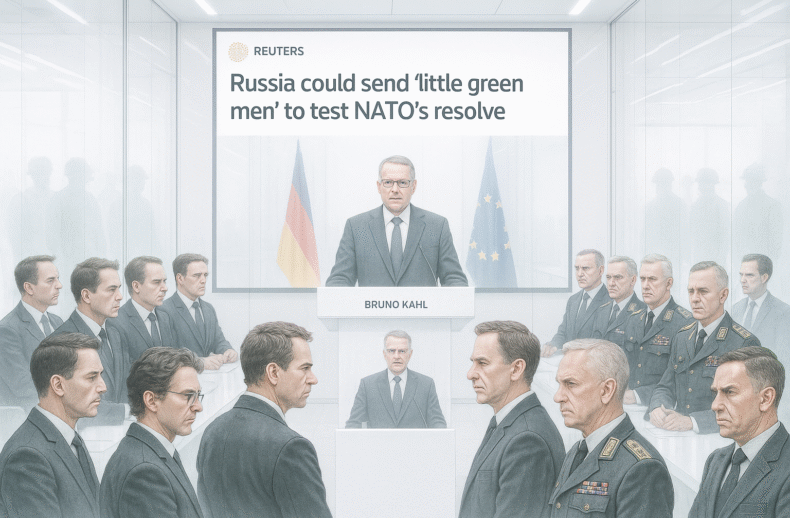A vague warning from Germany’s intelligence chief about Russia’s possible deployment of “little green men” triggered a full-spectrum performance across NATO institutions, media outlets, and political arenas. This essay dissects how modern decision-making is less about structural strategy and more about symbolic recognition—where intelligence, media, and governments amplify each other in a loop of performative escalation. Through the lens of Eidoism, we reveal how even ghostly threats can become real when every actor seeks visibility over form.




